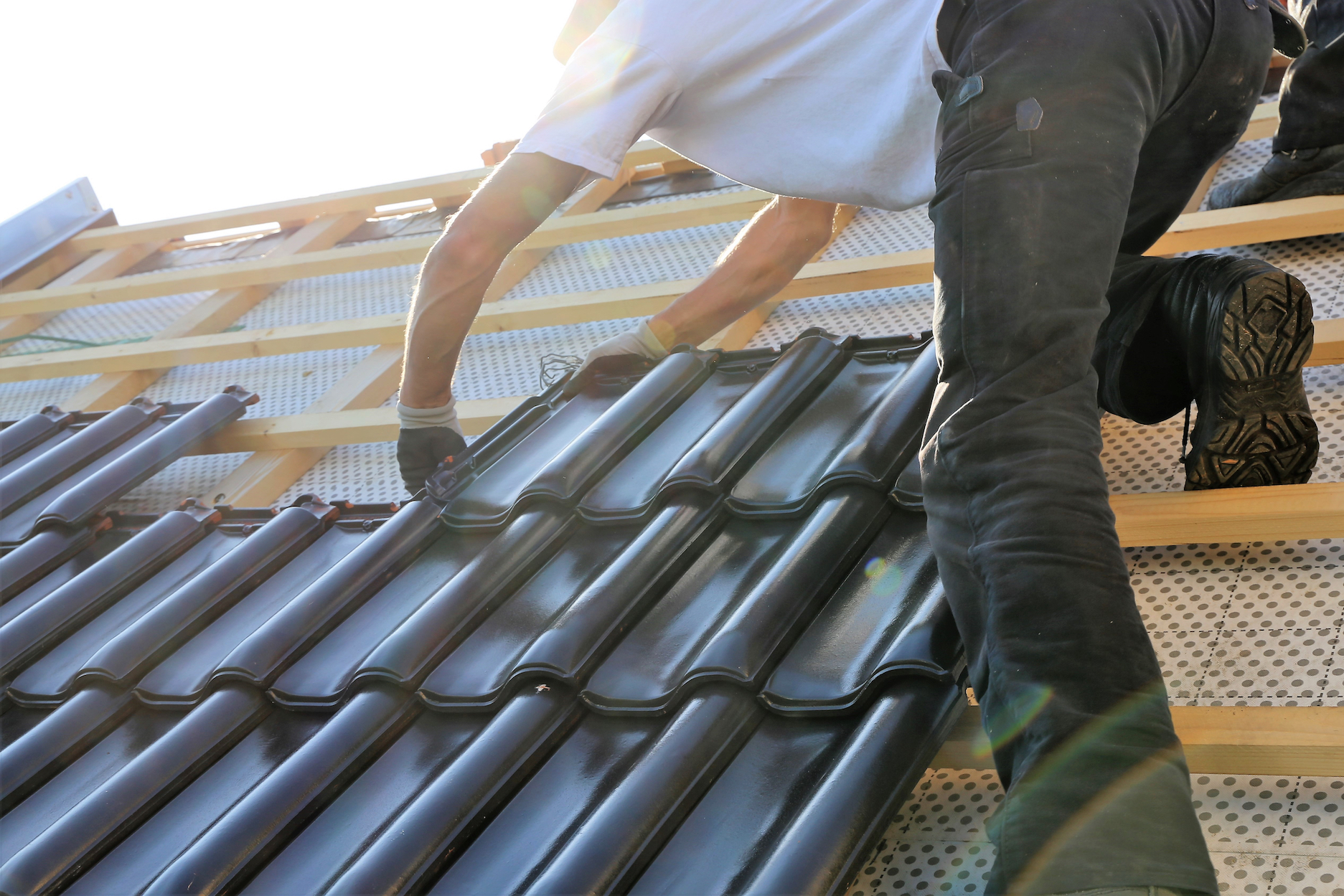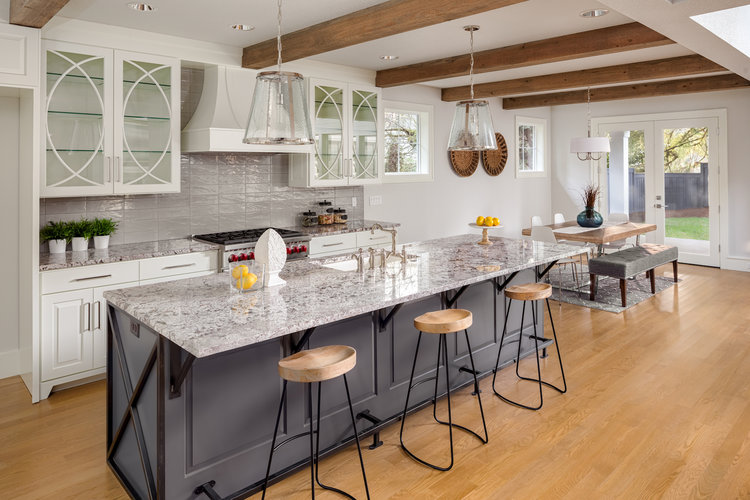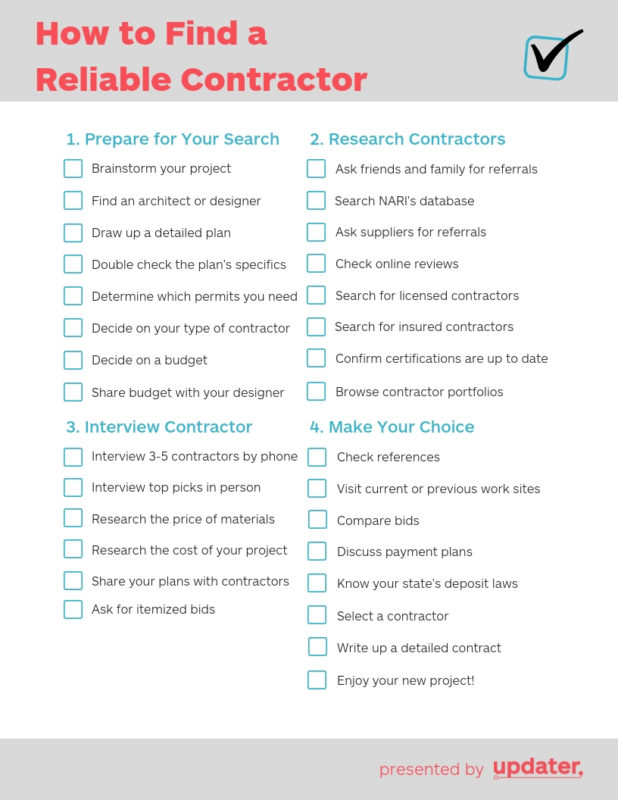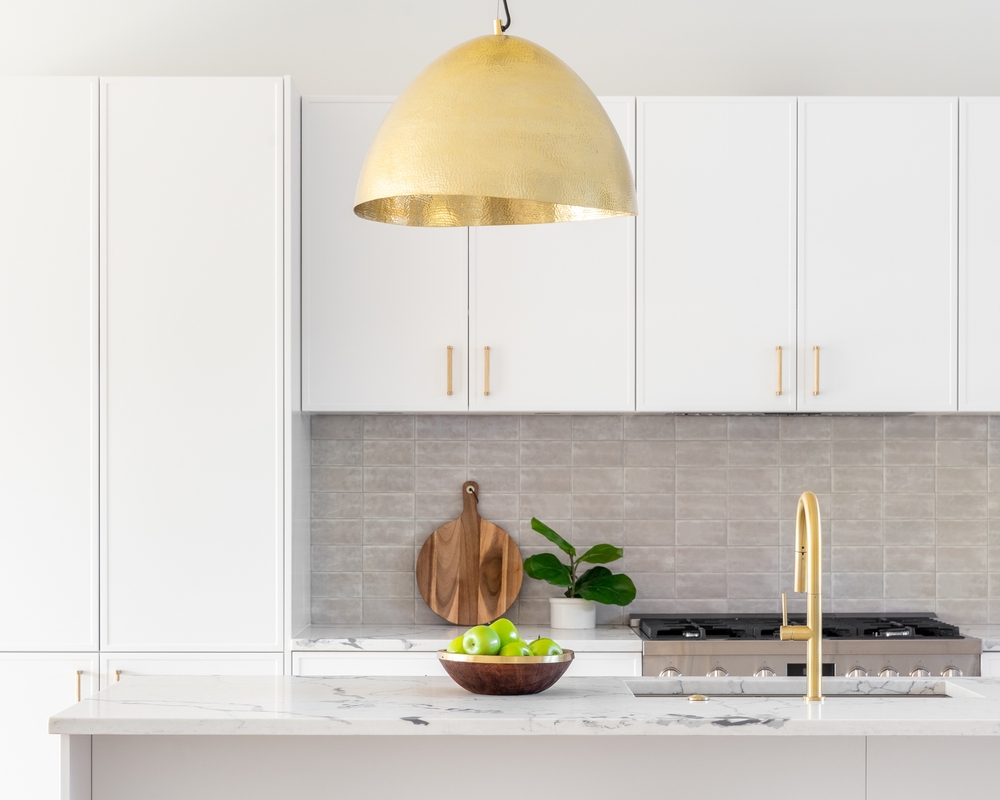How to Find a Reliable Contractor in Your Area

Moving soon? Get organized with our free moving checklist.
So you decided to redo your kitchen and need to know how to find a reliable contractor in your area? You’ve come to the right place! We know that looking for a contractor can be stressful, so we put this guide together to help you plan ahead and stay informed. Here’s what you need to know about finding a contractor, from starting your research to paying for services. Be sure to follow these guidelines to find a reliable contractor you can trust.
Prepare to Find a Contractor
Know what you want.
Like most things, the best way to find a good contractor starts with preparation, so make sure you know what you want before reaching out to any potential contractors. How much square footage do you need? Which light fixtures do you want? Putting your answers on paper before talking to a contractor will help you communicate your ideas and wants later on. For inspiration, try a home design app to test out different details and finishes.
Draw up a plan.
Once you know what you want, start reaching out to different architects and planners to have a detailed plan drawn up. You’ll want to do this before you start your search for the best contractors in your neighborhood. Since various contractors will use this plan to give you an estimate, make sure your plan is as detailed as possible and ensure your specifications are also in the drawing to avoid miscommunications down the line. Getting seven-foot ceilings when you asked for nine, for example, would be a costly alteration to make after the fact.
Become familiar with your permits.
If you’re wondering how to find a contractor that knows their stuff, ask them about permits. They should know which permits you’ll need, but you should also be aware of them since their cost will come out of your pocket.
Know the type of contractor you’ll need.
Just as you wouldn’t hire a grill master to run a sushi bar, you likely wouldn’t call in a cabinet maker to install your shower. Going out of your way to find a contractor that specializes in your project will make life easier for both you and them. Plus, it could save you time and money since you’re more likely to have the job done right the first time.
There are many different types of contractors, ranging from plumbers to roofers, and hiring the right contractor depends on the work that needs to be done. If you’re starting a large project, you may need a handful of different types of contractors. Your best option would then be to bring in a general contractor since they have networks of contractors and subcontractors for large projects such as building a home or adding an extension. Here are some of the other most frequently hired contractors:
-
Electrician
-
Roofer
-
Plumber
-
Drywaller
-
Tiler
-
Painter
-
Landscaper
-
Cabinet Maker
-
Carpenter
-
Heating and Ductwork Contractor
-
Mason
For much smaller projects that still need a couple different trades, such as changing out the tiles and cabinet in your bathroom, go with a handyman. These contractors are skilled in a variety of trades and can tackle small projects. Handymen can install, repair, and replace the following:
-
Hardware (faucets, door knobs etc.)
-
Sinks
-
Light fixtures
-
Standard-size doors
-
Drywall
-
Backsplashes
-
Bathroom tiles
-
Dishwasher
Plan below your budget.
Whether you’re remodeling a fixer-upper, replacing your backsplash, or building a house from the ground up, you must decide on a budget. To stick within this set budget, keep it in mind throughout the lifecycle of your project. It’s also important to share your budget with your architect or designer. If you don’t, you could end up with way more of a project than you can afford.

Do Your Research to Find a Reliable Contractor
Ask for referrals.
One of the best ways to find a good contractor in your area is through word of mouth referrals. Did your coworker remodel their kitchen recently? Love your friend’s new bathroom? If so, ask them who they hired and how their experience was. If not, you can visit the National Association of the Remodeling Industry (NARI). Their site helps you find a contractor by searching via zip code, specialty, and company name. You can also seek referrals from local suppliers since many of them regularly work with some of the top contractors in the area.
Read online reviews
No doubt you want to know how to find not only the best contractor, but also a contractor you can trust. Check online review websites such as Yelp and the Better Business Bureau to read customer reviews. These reviews are written by actual customers which makes them handy resources. That said, use these sites in tandem with in-person referrals and NARI’s website to make sure you get the most accurate contractor reviews possible.
Check licenses.
Regulations vary from state to state but as a general rule, hiring the best contractor in your area will mean working with a contractor who is licensed. Even if your state has lenient rules about licensing, you’ll want to be particular about who you hire in case there are any issues with their work.
No matter what, you’ll want to be sure that the contractor you choose is at least one of the following:
-
Licensed – As we mentioned briefly, licensing is the most secure way to ensure your contractor is equipped to tackle your project. To become licensed, contractors must complete hours of apprenticeships, a written test, and ongoing education programs. They must also provide a fee and proof of insurance and/or bonding.
-
Registered – Registering requires contractors to pay a fee and provide proof of insurance and bonding. Unlike licensing, registering does not usually require any competency tests.
-
Bonded – Bonding is an insurance policy taken out by a third party. This means that, if a contractor does shoddy work, you’d contact the agency that took out their bond to receive payment for your losses.
-
Insured – Insurance protects both you and the contractor, so you’ll want to be certain that the contractor you choose is well insured. Ask if they have liability and worker’s compensation coverage, and request their Certificate of Insurance. Then call the insurance company to ensure their policy is in good standing.
With each of these, you’ll want to see the contractors’ certifications or any paperwork proving that they’re valid and up to date. If a contractor fails to provide the paperwork this is a major red flag and you should take your business elsewhere.
Look for an online presence or portfolio.
Once you find a handful of qualified contractors, it’s time to check out their work. You want to find a contractor who can relate to your style. If you’re a mid-century modern fan, for instance, you may not want a contractor who specializes in Victorian details.
Wondering about the best way to find a contractor’s style? Browse their online portfolio, if possible. Some companies have social media pages even if they lack a business website, so be sure to search Facebook, Instagram, and other social media platforms while researching potential contractors.

Reach Out to Contractors
Interview at least 3.
This is when things get exciting while searching for a contractor in your area. You now have a shortlist of the contractors you like and trust will do a great job. You know their qualifications on paper, and now you get to discover what makes them stand out. Afterall, knowing how to find a great contractor goes beyond referrals and licenses. You’ll be working closely with this person, so you should be sure that you communicate well and that you feel you can trust them.
As a general guideline, interview three to five contractors total. Any less and you’ll miss out on a strong comparison. Any more and you could get confused. While you can start with phone interviews, be sure to interview the finalists in person. Do not sign anything, however, until you’ve met with all of your potential contractors and made a final decision.
Price out your project.
For large projects, you can pay your architect an extra 5-10% of your total project cost to handle the bidding and oversee the project for you. For smaller projects, you can price out the job yourself.
When interviewing your contractors, share your plans with them and ask for an estimated bid on your project. Be sure to request an itemized bid so you can see the breakdown of what they expect to charge for different aspects of the job and what their markup is for supplies. Ask for a breakdown of the cost of materials, labor, profit margins, and ask how long they will take to provide your estimate.
You’ll want to do a little research yourself before selecting a bid so you’re familiar with the wholesale price of materials and the average cost of your project. If replacing a sink usually costs $500, for example, you don’t want to be charged $2,000 for the same thing.

Select a Contractor
Check references.
Before making your final selection, ask the contractors on your shortlist for references, then check them. Call around and go visit previous or current construction sites, especially if you’re hiring them for a large project. This is the best way to find a reliable contractor in your area whose work you can trust.
Be aware of the details.
When you’re learning how to find a reliable contractor, every detail matters. Be aware of how long they take to provide an estimate and if they itemize it as requested. This could be an indication of how long they will take to complete your project. Also look at the formatting. Is it organized? This may seem small, but if they put enough care into formatting your estimate, they’ll likely put the necessary care into your project.
Don’t jump on the lowest bid.
You’ve been waiting for weeks and you just want to get started. We hear you, but it’s important to look at each contractor’s bid and weigh any variations in price carefully. Markups and labor costs should not be so drastically different. If they are, you could be looking at a red flag.
Negotiate payment options.
Now would also be a good time to discuss payment plans with each contractor. You may be asked to pay a deposit and in some states, there is a maximum on how much you can put down. Since they are regulated on a state by state basis you’ll want to know what your state laws are before signing anything.
For larger projects, you can create benchmarks with your contractor for payment. You can pay an installment once the walls are up, for instance. Whichever way you decide to break your payments up, make sure you have a clear timeline on paper to keep track.
Write up a detailed contract.
This is one of the most important steps when discovering how to find and hire a contractor. Either your lawyer, your architect or the contractor will write the contract for you. It should include your payment schedule, a timeline for work to be completed, and as much information about your project as possible. Using a certain brand of cabinetry? Know the hardwood floors you want? Make sure all of these specific details are in your contract and don’t sign it unless you understand the whole thing.
The Other Golden Rules
There are two golden rules when it comes to paying for contract work: (1) don’t pay upfront and (2) do not pay in cash. Never pay the full price or your final installment before the project is complete. To save yourself the stress of a possible scam, wait until all of the work is completed and any inspections have been passed to finalize your payments. Pay by credit, debit, or check to ensure you have proof of payment should you need it. If something goes wrong, you don’t want to be stuck in a legal fight.
Tips for Working with Your Contractor
-
Communicate with your contractor regularly and know that there are no stupid questions.
-
Use Lien Waivers to protect you in the event that your contractor fails to pay their subcontractors.
-
Visit the site frequently and take photos throughout the process.
-
Keep a paper trail of everything including payment receipts, contracts, and emails.
Now that you know the best way to find a reliable contractor in your area, here’s a printable checklist to remind you of all the important details. Store it in your wallet or tack it up somewhere to use when you need it, and know that you have all the tools you need to find the contractor that is right for you. If you’d rather keep it digital, keep scrolling for a downloadable version of the same handy checklist.














